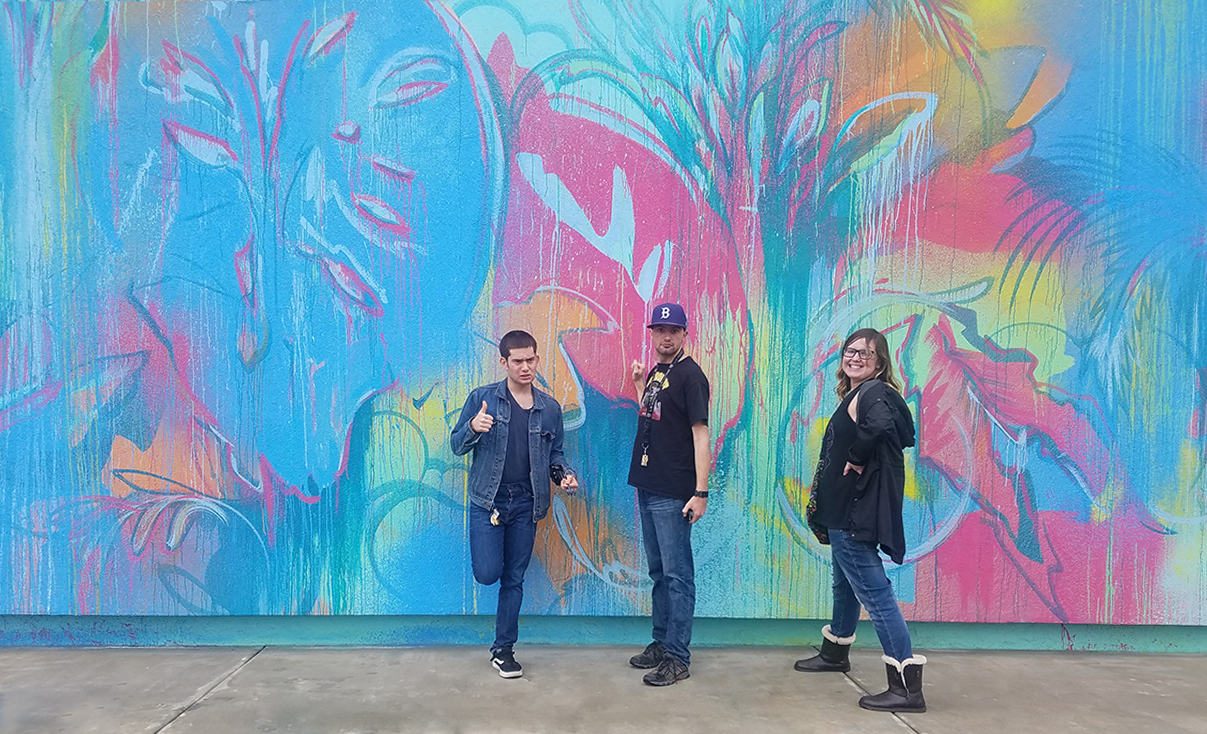
- Blog
Transition to Adulthood: From the Comfort Zone to the Unknown
Transitions, at any level, can be both exciting and daunting for anyone, not just young adults with learning differences and autism. We take the necessary steps to prepare ourselves for the next steps, but the future will always remain unknown. As we grow, we learn to navigate these transitions and utilize resources to minimize the anxiety associated with beginning something new.
At CIP's transition programs each year, we transition students from full-time support to a more independent lifestyle. We help them work together to build both their community and online resources. They have learned how to register to vote, how to find an apartment, how to locate post-CIP support, how to set appointments and find health professionals, etc. Here is a sampling of resources and skills they have found helpful.
Social - Meetup, Volunteering, Zoom, Xbox Live, Discord
When students transition out of a program like CIP, they are leaving an environment with structured social activities and consistently reinforced social skills. To find and maintain social relationships, they will need to utilize the skills they practiced throughout their time to initiate new interactions - and that may be uncomfortable at times! Platforms like Meetup are available in most major cities, bringing people with similar interests together to build social connections within the community. In addition, volunteering or community service brings like-minded people together in a low-social-risk setting, creating opportunities to connect with people with shared interests.
Alternatively, meeting up online with friends can be accomplished through services like Zoom, or for gamers, even Xbox Live or Discord. Always practice good internet safety!
Mobility - Uber, Lyft
Becoming familiar with the local public transportation system, and learning how to plan a trip from Point A to Point B and back, is crucial. Traveling by bus can be an affordable option, especially if you qualify for a student or reduced fare. For those in geographical areas that may not boast a substantial public transit system, other options to explore include Uber and Lyft car services, as well as putting that old bicycle to use! A particularly useful app to consider is called Moovit. This app provides real-time travel planning and provides the rider with alerts when their stop is coming up. It is easy to become distracted on the bus and realize that you have stayed on a few stops too long -- with the Moovit app, you can receive a vibrate or tone alert on your phone to bring your attention back to your route.
Finances - Mint (Credit Karma), YNAB, GoodBudget, MyMoney, IRS
Online resources and mobile apps allow you to track your income and expenses, set short and long-term savings goals, and monitor spending trends using visual aids. Helping young adults on the autism spectrum become financially independent doesn't stop with learning how to effectively manage a budget, unfortunately! To learn more about banking, budgeting, taxes, understanding your paycheck, investing, etc., a few good places to start would be MyMoney.gov and IRS.gov. These sites walk you through a series of "modules", including pre and post-tests, to help you gain a better understanding of your money.
Keeping a Schedule/Routine - Google Calendar
For managing commitments, maintaining a schedule, keeping a task list, inviting others to join an activity, and receiving built-in reminders, Google Calendar can be an extremely powerful resource. We encourage the exploration of a variety of scheduling and calendar options in order to find what best fits the needs of the individual. Google Calendar also has a very useful to-do list function to help keep you organized and meet your goals! Transitioning students are encouraged to utilize a scheduling tool to help manage both their day-to-day commitments, as well as any appointments or social activities that arise.
Housing - Touring apartments, finding a roommate, and understanding the lease
Our recommendation as a group is to practice what questions to ask, practice searching for options in order to learn your preferences (ApartmentFinder, HotPads, RadPads, area property management sites, etc.), and practice taking as many apartment tours as possible well in advance of the transition. This search may also include browsing trusted sites, such as Roomster, and setting up roommate interviews to determine compatibility. In addition to searching for appropriate housing options, taking the time to explore the area neighborhoods can help ease the anxiety of living in a new location, locating local services, and maintaining safety when out and about.
Chipping away at the "unknown" of a transition can make all the difference in confidence and success for students taking that next step. Practice, practice, and more practice utilizing these skills and resources before the transition benefits the student throughout their lifetime. We are confident that these students are taking the next step prepared and ready to tackle the future!
About College Internship Program
The College Internship Program is a comprehensive transition program for young adults on the Autism Spectrum and with Learning Differences. Our Mission is to inspire independence and expand the foundation on which young adults with Autism, ADHD, and other Learning Differences can build happy and productive lives.

